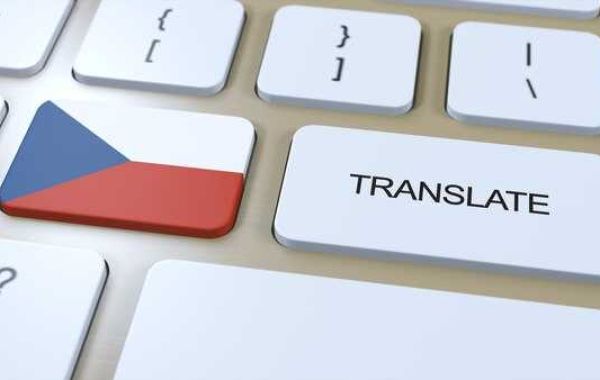We live in a world where linguistic and cultural differences between people shrink year after year. Are you one of the millions of people who decided this year to immigrate to a foreign nation? Are you looking for a way to expand the profits of your venture, and are you considering investing in new markets? Are you dealing with foreign clients, and must you handle documentation that needs to be admissible in an international judiciary setting? If so, one of the best things you can do is call on the expertise of a firm that provides professional translation services.
The world is more interconnected than ever. Therefore, moving abroad for both personal and business reasons is accessible to the vast majority of individuals. However, we do not live in a monolingual society where territorial borders have become irrelevant. Are you planning to conduct your professional activity abroad? Do you want to relocate to a new nation and invest in your long-term personal development? Then, you will need to use professional translation services.
Why Are Human Translators Better?
AI-based applications have made significant strides in recent years. As a result, they are the preferred choice for most people when translating documents or texts that aren't of major legal or commercial significance. However, suppose your priority is accurate translations, free of errors, that can be used in court. In that case, the only solution you can rely on is the professional translation services of an ISO 17100-certified agency. Although artificial intelligence has evolved enormously in the last five years, human translators, especially those with native knowledge of the output languages, are still significantly better at understanding the contextual elements within analyzed documents.
Humans can interpret the subtleties of foreign languages with a much better degree of accuracy than AI-based translation apps. Moreover, they can understand idioms and local-specific cultural references, which generally would have been lost in translation. Humans can convey multiple messages and tones in translation work and adapt the analyzed documentation to the linguistic characteristics of the text’s target audience. Some languages, for example, do not have a direct equivalent for common words used in English. Do you want, for example, to translate the word “deadline” into Arabic? This could be problematic, as there is no direct native word for it.
Above all else, human translators are creative and can produce an accurate and logical translation of your documentation regardless of the difficulties encountered during the text analysis stage. AI-based applications, especially those using extended neural networks, are becoming better at this, and with time, they will probably reach a level of text interpretation similar to professional translators. However, at least for now, the internationally recognized professional translation services provided by human linguists are better at understanding the cultural expectations of target audiences, utilizing complex sentence structures, and detecting errors in the analyzed documentation.
The Difference Lies in Creativity
Human translators are, and will probably continue to remain, even in the distant future, significantly better at creative translations than AI-assisted applications. Humans can employ innovative solutions to get out of tricky situations where there is no direct equivalent for the analyzed words or phrases. This is something that AI translation tools still struggle with. Sure, for common idioms used in internationally spoken languages, AI does a pretty good job of interpreting original work and understanding the meaning of the analyzed texts. However, for situations that were not encountered in their training data, their algorithms pretty much fall apart.
Are you a business owner, and do you want to adapt your regional marketing campaign to the cultural and linguistic preferences of foreign audiences? Are you operating in media, and are you looking to translate original television scripts or subtitles into texts relevant to non-English speaking audiences? Then, it would be best if you used human translators. At least for now, in 2024, the services of human professional translators are significantly better at capturing, replicating, and understanding the humor and cultural values present in the analyzed documentation.
Moreover, the services of human translators are a requirement for niche use cases that were not covered by the training data of AI-based apps. Do you want, for example, to translate a historical document? If so, the accuracy of the necessary work will be influenced by the context of language evolution. Therefore, this is something that will most definitely require the specialization of an experienced translator. AI-based apps have their uses. However, they can’t replace the ingrained creativity of the human mind.
When Are AI-Based Applications Suitable for Translations?

More than 7,100 languages are spoken around the world. However, more than 75% of them have fewer than 100,000 active speakers. Are you trying to leverage AI-based translation applications for texts written in languages with only a few thousand active speakers? That will not work, and you will require the expertise of a specialized linguist. However, if you are trying to translate documents from internationally spoken languages like English or Spanish, and your documentation is not of significant importance, then AI translations present advantages. When can you use them?
For starters, AI-based translation applications can be utilized for real-time communication between people from different countries. Plus, they can be of tremendous help with simple public announcements, e-commerce product descriptions, or travel assistance. Do you, however, want to translate an official document that has legal significance? Do you need to translate your medical records or complex literary works where mistranslations could have severe consequences? Then, you will need the expertise of a certified translating agency. As a general rule, unimportant documentation that does not require nuanced interpretation can be translated with AI. Yet, for complex texts in which accuracy is mandatory, the only solution remains the expertise of humans.
The Best Aid for Accuracy-Focused Individuals
Do you want to ensure clarity in legal proceedings and start your professional activity in a new market without risking non-compliance with local legislation? If so, the specialist you hire could translate your contracts, court documents, or academic diplomas. Do you need medical assistance in a non-English-speaking country? Then, for accurate treatments, you could consider translating your medical records. Are you looking to translate your financial documentation, immigration papers, or your academic certifications? Then, you will require professional help.
Moreover, if you’re interested in the expansion of your venture’s activities, professional translation services can be leveraged for your commercial texts and promotional messages. From the translation of literary works to the adaptation of your website’s content to regional linguistic preferences, the services offered by professional translators are diverse. So, in the long term, they could be crucial for your personal and professional development. The translating services provided by a certified agency with experience in this domain will not be exactly cheap. However, the benefits they can bring to your personal and professional endeavors will be worth any expense.








